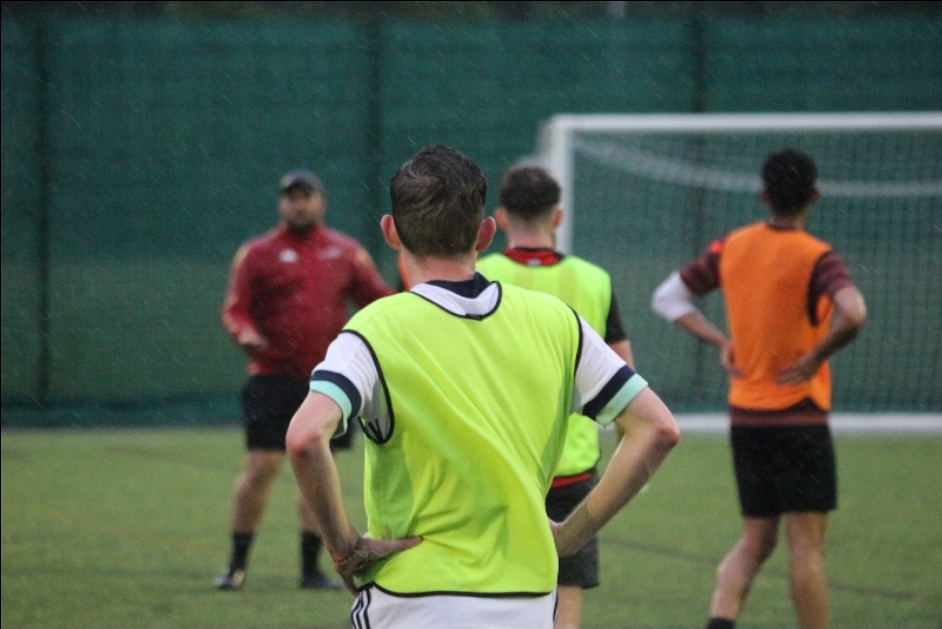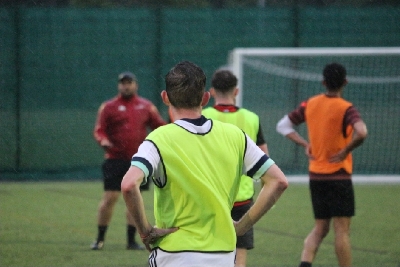This post was published by a guest. The views expressed are those of the author and do not necessarily reflect the views of Scified.com.
Today, football is not just played on the pitch, but also in code format on millions of server lines. AI technology is advancing so rapidly that algorithms scan games, track moves, and provide unheard-of player suggestions all within seconds. But, is the machine sophisticated enough to track the next Messi? Now let's take a look at the new world of data scouting.
AI Joins the Scout Team
AI is not replacing football scouts, but rather helping them. Traditional football clubs like Brentford FC, Midtjylland, or even the powerful Manchester City have integrated AI technology to keep track of thousands of players across all major leagues. SciSports and Wyscout are two tools that monitor over three million data points in a single match, from the speed at which a player sprints to their on- and off-the-ball movements. In addition to the basic stats available on online cricket betting apps, AI looks at potential, credibility, tactical elasticity, and so much more. He learns every single day, making him smarter and more powerful in the process!
So, in Portugal, Benfica uses AI for heatmap generation to check if a player occupies certain positions on the field or if they are just roaming around without a sense of direction. One use case was the recruitment of Darwin Núñez, where predictive AI modeling helped him. The model predicted a 40% surge in scoring efficiency during the subsequent two seasons, and it came true. It is apparent that these systems are not merely helping clubs recruit players: they are guiding them to the right players!

Talent Through Data
Scouting in this day and age goes beyond just observing a player; it involves quantifying, contrasting, and forecasting a player's potential. Today, AI technology seeks players who fit specific profiles for clubs. With its digital vision, it is able to perceive things that even some professionals fail to notice. Here is how it is changing the search for talent:
- Pass Success Under Pressure: AI tracks whether a player succeeds with a given task when opponents are close by. This ability has helped Ajax identify midfielders who possess elite composure.
- Predictive Growth Models: SkillCorner’s systems are capable of physically and cognitively analyzing an athlete’s data and projecting their future performance to help clubs invest in players early, such as with Jérémy Doku.
- Tactical DNA Matching: RB Leipzig creates algorithms to evaluate how players’ styles of play are matched to the team philosophy, which enhances adaptation to the club’s high-press structure.
- Fatigue Resistance Indexes: AI now estimates a player’s ability to maintain intensity based on heatmaps and run tracking data. This was used by Liverpool in their evaluation of Luis Díaz.
This is more than simply scouting; it is data-driven and automated strategizing in action.
Spotting Stars Early
Gone are the days when teenagers in remote academies were overlooked. AI is now analyzing even the lower leagues, youth competitions, and even social media content. Reportedly, Real Madrid's AI division automated the review of more than 10,000 youth players in a single year. And the results? Their U-17 recruitment pipeline is now considered one of the most advanced in Europe.
A remarkable example is the young Brazilian phenom signed by Real Madrid, Endrick. He was projected by AI models to reach top-tier striker benchmarks in the elite leagues well before stepping onto the premier stage due to projected shot speed, movement, and game sense. This resulted in a €60 million signing long before most fans had the faintest idea who he was. AI is not in the business of waiting for the headlines. It is in the business of setting the headlines!
Numbers Behind the Skills
While scouts appreciate style, AI praises the technical effort and consistency behind advanced decision-making. Here are some of AI's areas of focus:
- Defensive Transition Speed: Monitors the speed at which a player moves from attack to defense. Considered critical by teams like Manchester City or Napoli.
- Off-the-Ball Movement Scores: Assesses advanced positioning, which helps clubs identify playmakers ready to open space such as Martin Ødegaard.
- Decision-Making Under Pressure: Evaluates selected options against the available options, showcasing their football IQ and skill in tight spaces.
- Expected Threat (xT) Metrics: Goes beyond simply quantifying goals and assists. This statistic adds value to actions that increase a team’s scoring chances. Brighton utilized these metrics while scouting Kaoru Mitoma.
With all the advanced analytics, teams can create smarter strategies while putting together smarter squads.
Smarter, Faster Decisions
Transfer windows are notably brief and quite intense. In the batch, mistakes can have dire financial implications. In this space, artificial intelligence simply automates decision-making, which removes the potential for compromise. On the data-first operating model, clubs like Brentford can create a 50-player shortlist within two days. The club evaluates injury history, market value, tactical fit, and overall cost within the same automated dashboard, and the algorithms do the rest.
To tight-budget clubs, this technology is revolutionary. FC Midtjylland from Denmark used AI technology to build a title-winning squad for a fraction of the competitors' budget. Their model was able to predict goal contribution per €1 million spent and backed traditional recruitment by 27% in two seasons. Less guessing, more targeting!

Bias-Free Recruitment
The most revolutionary development in modern technology is that AI does not show bias. It does not care about nationality, club prestige, or even skin color. What it cares about is fair, raw performance analysis, which you can be certain will always be impartial.
Evidence from a pilot study in France’s Ligue 2 showed AI-processed shortlists resulted in a 40% increase in the diversity of selected players. Previously unheralded defenders from Ghana and Colombia were added during the trial phase after their elite-level defensive recoveries were flagged. Clubs began seeing value in places where traditional scouting methods would overlook. It is not just about improved football. It is about fair opportunities for everyone!
The New Era of Scouting
AI has come to knock at every locker room door. The purpose is not to take over but to make use of every hidden brilliance out there. Every player, scout, and fan worldwide will soon find themselves in awe. AI is about to put every corner of the world under the spotlight. Why? Because data, unlike us, never lies. And by AI’s estimation, the next football superstar featured on its algorithm is already waiting to be let loose!

Benefits of Using the Mobile Client: An Analysis of the 1x Casino App Download
Playing casino games on your phone should be quick, safe, and actually enjoyable (not a chore). The 1x Casino mobile client aims to package your accou...

CryptoEasily launches stable-yield cloud mining contracts, creating a new way for BTC and XRP holders to earn $7,700 per day.
As the price of Bitcoin and the value of XRP continue to decline, with Bitcoin falling below $75,000 and XRP dropping to around $1.50, market sentimen...

Uri Poliavich: Building the Future of iGaming One System at a Time
Uri Poliavich never set out to make noise in the iGaming world; he set out to build something that worked better. What started as a response to scatte...

When the Human Body Becomes a Sci-Fi System: Exploring Diabetes Insipidus
Imagine a future where humans rely on advanced hydration systems, yet some bodies defy even the most sophisticated technology. For people with Diabete...

Why Many Small Accounts Choose To Trade Forex With Precision
New traders need clear direction and the right guidance before taking steps to enter live markets. Small accounts allow fresh traders to test their sk...


